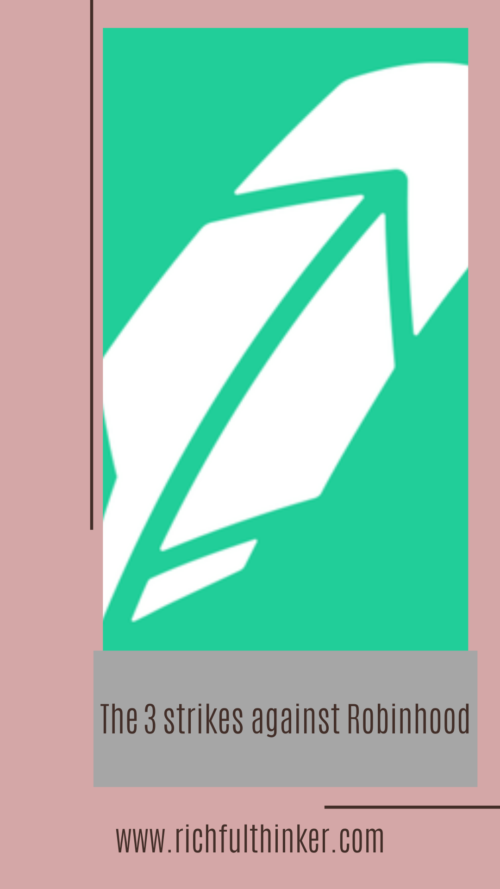'No such thing as bad press'
I am sure how many of you know the saying, ‘There is no such thing as bad press.’ Perhaps there is a limit to the idea because many people who have been holding onto their Robinhood accounts have reached their limit with the most recent news.
If you are unaware what happened, then I will enlighten you. So, during the battle between r/wallstreetbets and the hedge funds on Wall Street, Robinhood demonstrated which side they were on. They began to limit trades for certain stocks like $GMC, $AMC, etc.
However, this is not their first indiscretion but this is the one that set off many people and have prompted many to move their accounts out of the app. I have also been making the move out Robinhood and this was the final straw, however, there were 3 previous strikes that should have prompted my move.
1. Non-insured savings accounts
They were claiming that they would be giving 3% interest rates on savings accounts using SIPC insurance. For many who are unaware this is not the type of insurance given to banks, which is FDIC. SIPC insurance is only for brokerage accounts, not savings accounts. The reason this is an issue is that they caused young investors to risk their money in a product that was not insured properly. If anything happened, they would not be covered under FDIC insurance, which is the one you want to be under since up to $250K is insured under U.S. law.
Many people saw this as a lie since it was marketed as being insured. They did take the product away to avoid any confusion.
2. The 2020 Blackout(s)
The app crashed 3 times and 2 of them were on some of the most volatile days of the last few years. The market, particularly the DOW, had the largest one-day point gain in its 124 year history. Many Robinhood users missed it, including myself, but I figured it was because of some app coding.
But….
It happened again on March 3rd (the news broke that 6 people in Washington state died of the virus). And again on March 9th, which was a black day. The market crashed, the DJIA crashed 2000 points and the loss triggered the circuit breakers just as the market opened.
Right there. A lot of people left the app because it left them vulnerable. Robinhood is mainly marketed towards younger investors with smaller portfolios and this hurt many.
3. Free is not always free
I wrote this blog post a while back about my experience with Robinhood. I mentioned it being free but I remember looking into it and could not really figure out how they made money. Especially considering there were no ads on the app, something I decided to overlook.
Recently, it came to light how they made their money, you can read more here. This is a greatly simplified but it is by selling our trades to other brokers which provided ‘inferior trading prices.’ How much did this cost customers? $34.1 million dollars. Now, how much did Robinhood get paid for this rerouting? In the 2nd quarter of 2020 they made $180 million dollars. 180 Million. ONE HUNDRED AND EIGHTY Million. For giving their users inferior trading prices, misleading their consumers on how they made their money.
So you see, free is not always free.
Finally...
I will give them one thing though, they have changed the investing landscape and made it easier for new investors to take part in it.
So, I will thank them for that but in the words of Ariana Grande- ‘THANK YOU, NEXT.’
